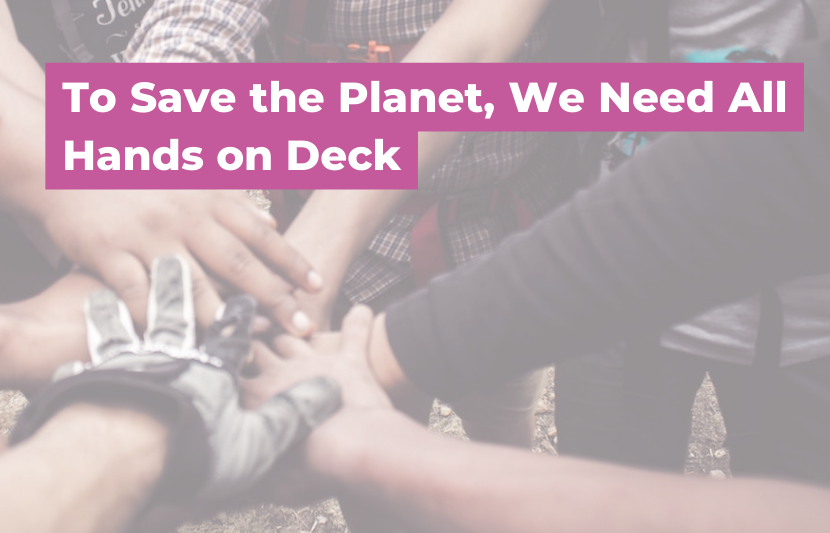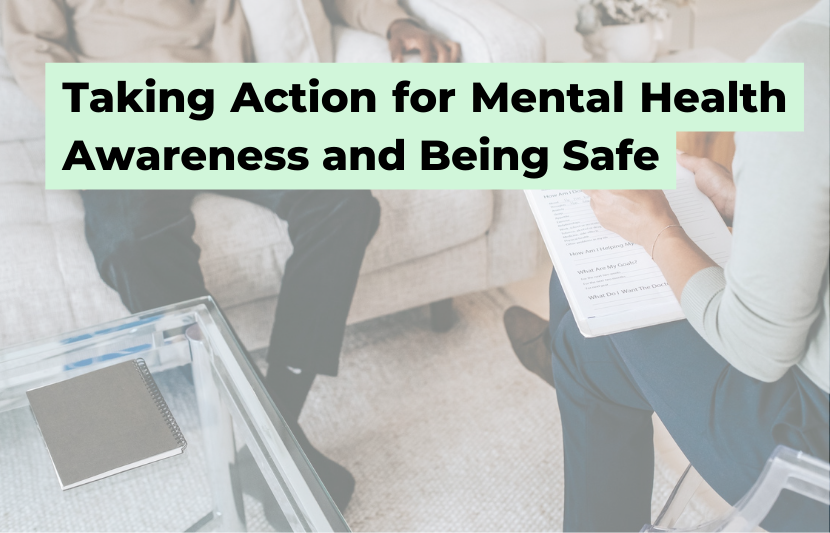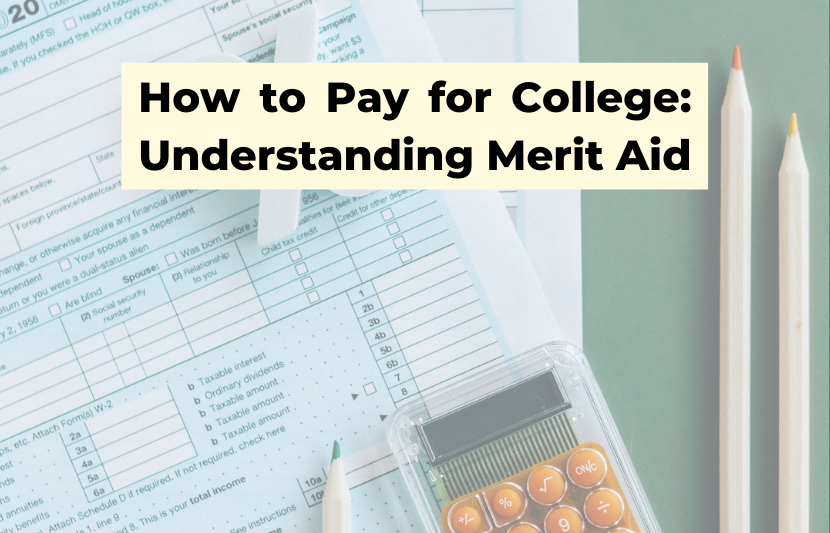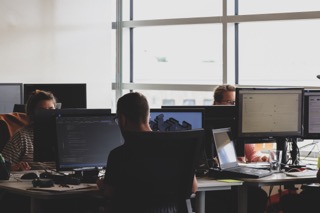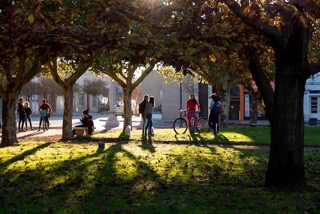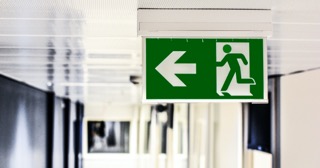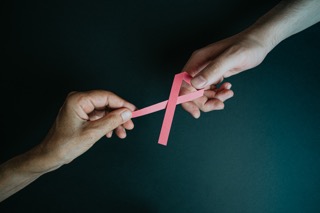In this episode of TUN TV, Dr. Crystal Rose interviews Dr. Chantal Line Carpentier, the New York Office Chief for the U.N. Conference on Trade and Development, about working together to save the planet.
Dr. Rose: Welcome back to The University Network TV. I’m your host, Dr. Crystal Rose.
Today’s topic is based upon a published article, “To Save the Planet, We Need All Hands on Deck.” We’ll talk about how more people can have a positive role to save the planet. Whether you are a student, educator, employer, or even a governmental official, we all will need to work together to have a chance at saving the planet.
We’ve invited a very distinguished guest who brings a wealth of expertise and knowledge. Dr. Chantal Line Carpentier is the New York Office Chief for the U.N. Conference on Trade and Development, known as UNCTAD, at the United Nations in New York.
Welcome, Dr. Carpentier.
Dr. Carpentier: Good afternoon, Dr. Rose. How are you?
Dr. Rose: I’m well, thank you. I’m so glad that you’re here joining us.
We’ll first explore the problems at hand and then we’ll delve into the tangible solutions that you present in your article.
Dr. Carpentier: Sounds great. We want solutions, right?
Dr. Rose: Absolutely. What should people know when they hear about scientists declaring a code red regarding climate change and its impact?
Dr. Carpentier: Well, Dr. Rose, it’s sad. But what that means is that the science is clear that we are reaching a point where we will miss, if we don’t act now, a brief and really rapidly closing window of opportunity to secure a livable future.
We’re with business as usual. We’re heading to a 2.8-degree increase in temperature. That’s way above the 1.5 degrees that was agreed because that’s the level that will ensure that we know what’s gonna happen with our world.
Dr. Rose: So that’s just not alarmist rhetoric, correct?
Dr. Carpentier: It is not. There’s the intergovernmental panel that actually are scientists from around the world that get together, that have increasingly more sophisticated models to model what will happen under various scenarios and under-business-as-usual.
And when this report came out of the IPCC, the Intergovernmental Panel on Climate Change, it had been vetted by the top scientists from around the world. And then there’s a summary for decision makers that is negotiated. So these numbers are out there.
And by the way, every 0.1 degree change in temperature has a huge impact on the cost of adaptation, on the cost of mitigation, and the way we are gonna be living our life in the future.
Dr. Rose: I’m so glad that you said that. And for context, why did you write this article really as a call to action?
Dr. Carpentier: Thank you for asking this question because it’s important to me, as I mentioned earlier. And the title of the article says it all, right? We need all hands on deck. And also because the younger generation tend to be more attuned to the need to balance the economic imperative with the social and the environmental one. And to be frank with you, I think they’ve not been indoctrinated in any economic or financial model yet, so they can be more open to the alternative that exists out there, but they’re not in the mainstream and therefore can often be ignored by our decision makers in the business world.
Dr. Rose: Very powerful and inclusive as well. Can you expand upon why many perceive climate change to be a war on the planet? You mentioned that every 0.1 degree change really has a devastating cost, right? A total cost on all of us.
Dr. Carpentier: Yes, and I borrowed this expression actually from the U.N. Secretary General Gutierrez, when he spoke at Columbia University on the state of the planet.
And he literally said, humanity is waging a war on nature, and this is suicidal and nature always strikes back. That’s what he said. And she’s already striking back, as we can see with the flood and the drought and the extreme event that we are seeing. We still haven’t seen any snow in New York City this winter. Back home where I come from, in Montreal, the weather has been super warm and now finally we get some snow.
But it’s more than that. Biodiversity is collapsing, deserts are spreading, wetlands are being lost. We lose 10 million hectares of forests every year. Our oceans are overfished. And now in a few years, there are gonna be more plastic in the ocean than there are fish. And the carbon dioxide that they absorb is acidifying the sea, making the coral reefs bleach and die. Air pollution and water pollution are killing 9 million people annually. I can go on, but I will stop here because it’s quite depressing.
Dr. Rose: It really is concerning all around. And many people talk about that polycrisis. And you mentioned that, too, in your article.
So can you tell us, when people are talking about the polycrisis, that triple environmental crisis the world is now facing, what do you say about that?
Dr. Carpentier: Well, you know, Dr. Rose, we were coming out of COVID-19 at two speeds. Developing countries’ economies have not recovered as fast as ours because our government had the fiscal capacity to help the business to help us — tax breaks for companies, they didn’t have to pay their taxes, or they got help to keep people employed.
Developing countries did not have that capacity. Therefore, they were coming out of the COVID with a fiscal space that was already weak. And then as the economy was recuperating, we had the war in Ukraine where Russia invaded Ukraine.
And, basically, that means now we have cascading crises, which lead to cascading inequality and chronic instability. So with COVID, climate change and the cost of living, poverty is increasing. Hunger is increasing at an alarming rate. Inequalities between gender, women and men inequality, have been increasing. [Inequalities] between rural and urban areas, between developed and developing countries,[ have been increasing]. And the funding gap to achieve the SDGs has just boomed because a lot of the investment that had been made by the private sector in developing countries – this money, when there’s uncertainty, this money gets repatriated in our countries.
Dr. Rose: Absolutely. And I really appreciate how you took us around the world and really showed us all these different cascading results, and it really does bring to mind what about that summary for policymakers. There are people out there who are saying that we need different policies in order to counteract this triple environmental threat.
So, is this just for policymakers or is this something more people should know about?
Dr. Carpentier: So the IPCC has a huge report. It’s very long with hundreds of researches. So the summary for policymakers is basically distilling it down, taking out all the assumptions, all the models, and basically getting down to, what does it mean for decision makers, how urgent is it?
And they’ve made it clear – it is urgent that they act and where they should be having their policies. So it’s very important. But that also means that for us citizens – whatever we do with our life – and students, we also can use those as advocacy and do advocacy with our own government to ensure that they put in place some of these policies.
Dr. Rose: Absolutely. And for our audience, to find a link to the summary for policymakers, please check here.
Now, I know we’ll get a chance to speak to various components of society directly, whether it’s students, educators, governmental figures. But to start us off, what are some of the transitions we really need to see as a society in order to escape the perils of climate change?
Dr. Carpentier: Secretary General Gutierrez is basically saying, we need to stop our addiction to fossil fuels. And that means we need massive investment in renewable energies. We need massive investment in sustainable agriculture and food systems because, as I said, these cascading crises are leading to a cost of living of food, energy, and finance. But also address inequalities, which is leading to a lot of erosion of trust and social cohesion. And then alter our economic models. And this is really what this brief is about – what other economic model do we have out there? And then ensure gender equality and education for girls.
So there are five key areas actually laid out by the Club of Rome who were the first ones to basically say we’re about to pass the planetary boundaries.
So five – renewable energy, sustainable agriculture, inequalities, new economic models, and ensure intergender equality in education for girls. And as you can see, we’re doing pretty well on one – on renewable energy. There’s a lot of investment in renewable energy. But the other ones, we have a lot of work to do.
Dr. Rose: Absolutely. Those are five bold transitions that you just laid out there. If you had to boil it down then to just two tangible action items to circumvent the impending tragedy of climate change, what would those be?
Dr. Carpentier: It would be to repurpose hundreds of billions of dollars in subsidies to the fossil fuel industry and to the agricultural sector – 87% of it is creating damages to water. And repurposing those towards renewable energy and towards sustainable agriculture so it gives us financing to advance these first two.
And the second one, I’d say aligning our savings and that of the pension of our universities with the SDGs, asking our financial advisor, are our investments supporting advancing these goals?
Dr. Rose: Absolutely. That’s really well said. I really like that repurposing some of those funds, supporting then others that will be more sustainable for food source and otherwise, and in a way, disincentivizing anything that really is not aligning to the SDGs would be in our best interest. Now we’re exploring this in the context of the sustainable development goals, the SDGs.
Could you please share with us, Dr. Carpentier, how the cost of living crisis is now jeopardizing the achievement of the SDGs based upon 2022’s SDG U.N. report? What’s the latest on this?
Dr. Carpentier: Yes. So, basically, before the COVID-19 , we were already not on track to achieve SDG 1 on eliminating poverty. We were actually going backward on SDG 2 on food security. Health and others were not moving too far. We were making some progress but not enough to achieve the SDG by 2030.
And then there was the all-environmental one, the one we just talked about – basically, climate change, biodiversity, the oceans, all of those – we were not on track. Inequality, we were not on track. We were actually going backward.
And what the cascading crises have done and the cost of living crisis is doing is further reducing the fiscal space. Some have increased because of energy and security, and have increased their investment in the fossil fuel industry, while we were going the other way before that.
The world is not working together. We need to cooperate right now because none of our countries can solve these problems alone. But instead of cooperating – because of the war (Ukraine), because, during the pandemic, we’ve not shown solidarity – everybody feels like they’re on their own. Instead of collaborating and having some solidarity, we are all going on our own. And instead of having an economy in social drive, we’re getting geopolitical drive. And that is very dangerous.
And every time the Federal Reserve increases its interest rate, developing countries have to react to protect their currency. And that means they increase their reserve and that means their currency devalue. So the import cost for those that are food-import dependent just goes up, the energy bill goes up. And they borrow in foreign currency, so the cost of their debt goes up.
So this is the cost of living crisis, and that means there’s a lot of developing countries at risk of defaulting. If they default on their sovereign debt, then they will not have any money. For the next 10 years, they’ll be dealing with this, trying to restructure that debt, not advancing the SDGs and having no money to do that.
Dr. Rose: You laid that out really spectacularly. And you’re right, it is alarming and it is concerning. As a part of the U.N., could you then share with us, Dr. Carpentier, what the U.N. Secretary General Gutierrez discovered, even prior to 2019, why they weren’t on track?
Dr. Carpentier: We’re gonna have a summit in September 2023, summit on the midterm review of the SDGs. And a summit at the U.N. means that, instead of the delegates in New York that meet and discuss and negotiate, it’s the heads of states.
So the heads of states met four years ago before the pandemic to discuss how we were doing on the SDGs and the UN produced a global sustainable development report. So this is a 10- member group, independent scientists, nominated by the Secretary General that do look at progress or lack thereof.
And what they found is what I mentioned earlier, that we were not on track to achieve the environmental SDGs, the inequality, the peace one on SDG 16. And we were going backward on SDG 2 on food security. And though we were advancing on several of the others on health and education and even on gender equality, we’ve been regressing now after the pandemic.
None of them, even before the pandemic, were on track. I think it’s important to mention it – none of them were on track to be met by 2030. And we have the capacity. We just don’t have the political will.
Dr. Rose: We have the capacity, not the political will.
Dr. Carpentier: Yeah, it’s the lack of political will, the lack of solidarity in sharing technologies and resources with other countries because we fail to recognize that our economy and our countries are interdependent and interconnected. And we saw that with the COVID-19, right? One health system, and every health system and all of our economies went the same way. We are interconnected, and yet we’re still making decisions – and nationally – as though we are not interconnected.
Dr. Rose: Outstanding, Dr. Carpentier.
Dr. Carpentier: It is a pleasure and thank you for publishing this very important article.
Dr. Rose: And to our audience, thank you very much for joining us for this episode of the University Network’s Television Show, featuring our partner from the United Nations, Dr. Chantal Line Carpentier, the New York Office Chief at the United Nations Conference on Trade and Development, or UNCTAD.
Hopefully with her advice, whatever role you represent in society, whatever economy you’re a part of, you’ve learned some tangible steps you can do to help save the planet.
Here’s to your success. I’m your host, Dr. Crystal Rose.



